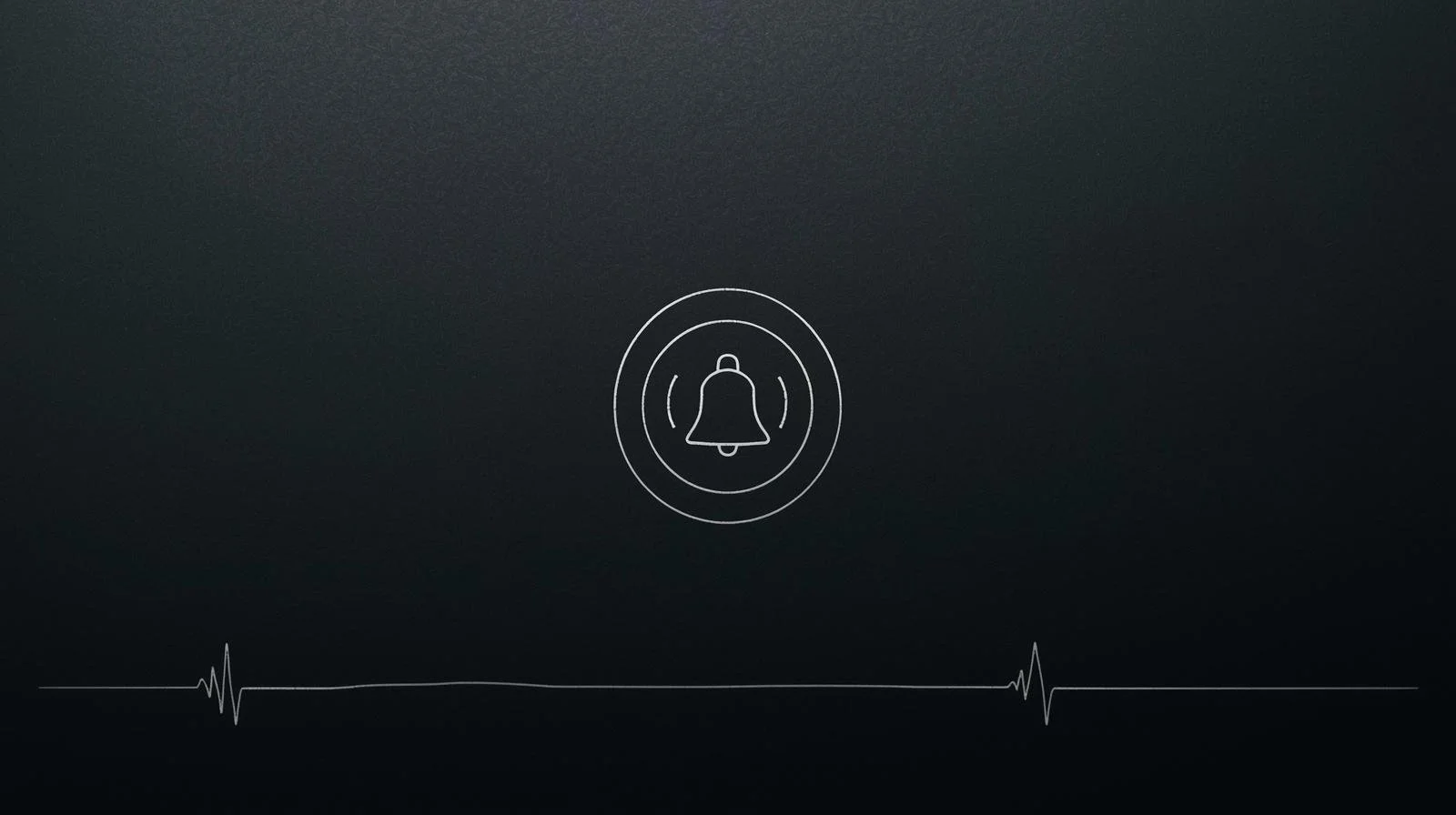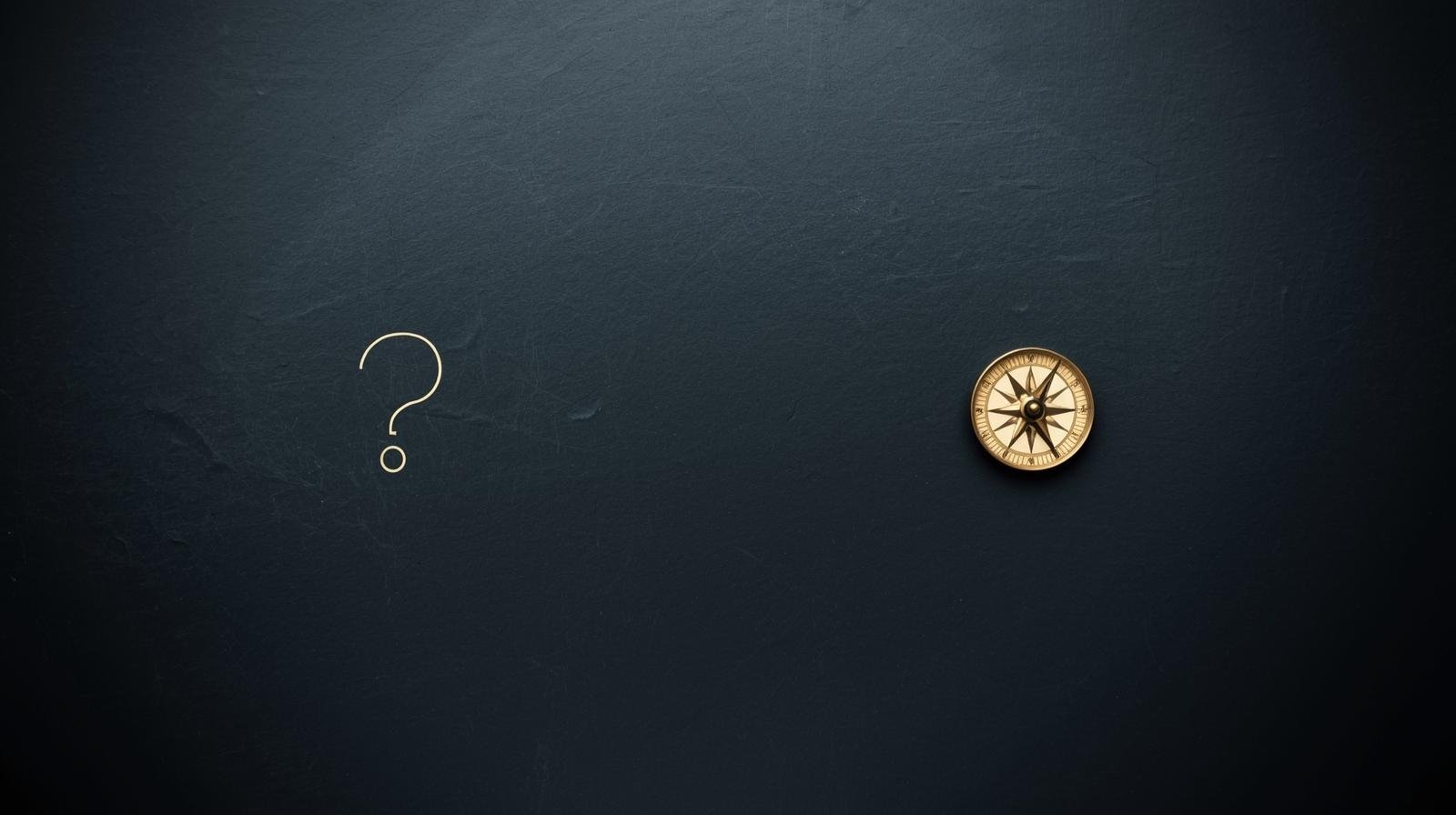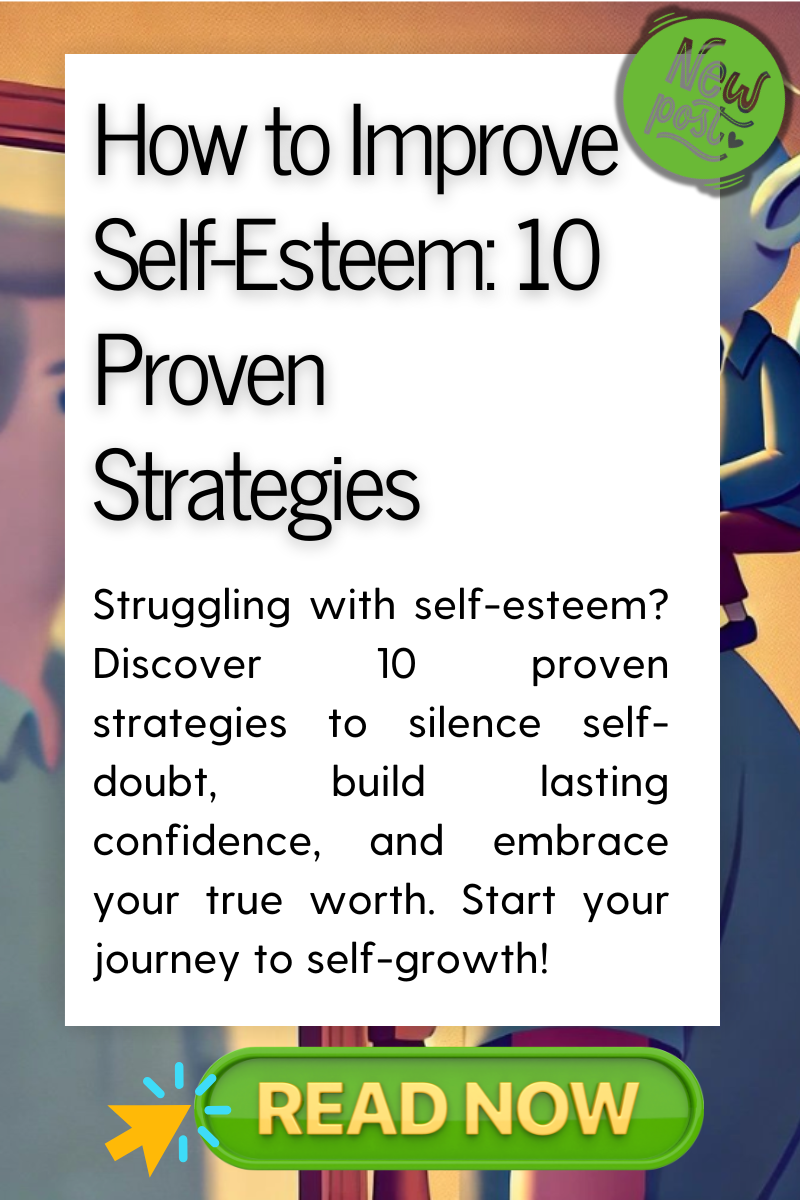Gut Feeling vs Anxiety: How to Trust Your Intuition
Your body knows before your brain does. A quickening in your chest. A knot in your stomach. A whisper that says don’t go there.
But here’s the hard part: is it your intuition speaking… or is it anxiety running the show?
We’ve all been there — pacing before a big decision, heart pounding, mind full of worst-case scenarios. One moment you’re convinced your gut is warning you. The next, you wonder if it’s just fear in disguise.
This is where most people get stuck. Anxiety feels loud and urgent. Intuition is subtle, almost shy. One grips you like a storm. The other arrives like a quiet nudge. And yet in the moment, they can feel so similar.
Jung called intuition a “perception by way of the unconscious” — the ability to see patterns before they’re obvious. Anxiety, by contrast, is the nervous system caught replaying past hurt in the present moment. One guides you forward. The other holds you hostage.
This post is a field guide. A way to tell the difference between the calm compass of a gut feeling and the noisy static of anxiety. Think of it as a map back to your inner wisdom — so the next time your body speaks, you’ll know whether to listen or to soothe.
The Moment It Hits
Picture this: you’re walking through a dark parking garage after work.
Your keys are gripped tight in your hand. Your chest tightens. You hear your own breath bouncing off the concrete.
Now pause. What’s really happening?
If it’s intuition, the message arrives crisp, almost quiet: Something isn’t right. Take the stairs. Call a friend. It’s less panic, more a steady tug toward safety.
If it’s anxiety, the mind spirals. What if someone’s hiding? What if I’m followed? What if I don’t make it home? Your heart races. Your body prepares for battle against shadows that may not even exist.
Both show up in your body. Both feel urgent. But only one is rooted in inner wisdom.
That’s why the difference matters so much. When you can distinguish between the calm knowing of a gut feeling and the storm of anxiety, you begin to trust yourself again. You stop living under siege from your own nervous system. You start making choices that feel grounded, not frantic.
This isn’t about silencing anxiety forever. It’s about learning the language of your body — when it’s pointing you toward truth, and when it’s replaying old fears on loop.
And that’s what we’re going to explore: the signals, the stories, and the practices that help you return to that quiet compass inside you.
What Is a Gut Feeling?
A gut feeling is your nervous system’s pattern recognition surfacing as an inner voice before conscious reasoning catches up. It pulls from past experiences, subtle cues, and context to deliver an immediate sense of direction. Think of it as a low-latency signal from your deeper intelligence… a gut instinct that arrives as calm intuitive feelings rather than anxious thoughts.
Here’s how it tends to show up in daily life: a gut reaction that says this deal isn’t clean even though the numbers look fine… a quiet deep knowing that a new relationship deserves patience… a small tilt toward the right choice when two options look equal on paper. The body’s way of speaking is often steady and specific. You might notice relaxed breathing, a grounded belly, and a sense of peace that doesn’t need a hundred proofs.
That doesn’t mean intuition ignores the rational mind. Mature intuition collaborates with it. The signal rises first, then you verify with light conscious reasoning… ask a clarifying question, run a small test, sleep on it. Over time this partnership increases accuracy and reduces self doubt. Intuition becomes a powerful tool for better decisions, not a wildcard.
Two tells that you’re feeling intuition rather than anxiety:
The message stays anchored in the immediate situation… not in catastrophic futures.
Your body feels alert yet regulated… not hijacked by fight or flight.
Intuition protects, but it doesn’t punish. It guides without shouting. It is the inner wisdom that helps you move through dangerous situations when needed, and it also helps you choose the best way forward in ordinary daily life. When you learn its texture, you can trust it… and you can separate it from the loudness of fear.
What Is Anxiety?
If intuition is a quiet compass, anxiety is the body’s alarm system stuck on repeat.
Anxiety floods the nervous system with anxious thoughts and physical symptoms — the sweaty palms, the racing heartbeat, the shortness of breath. It thrives on worst-case scenarios, pulling you out of the present moment and into imagined disasters.
Where intuition whispers, anxiety shouts.
Where intuition offers a steady inner voice, anxiety fills the room with static.
Anxiety often grows out of past trauma and negative experiences. Your brain wires itself to spot danger — even when none exists — because it thinks that will keep you safe. In reality, this “safety” becomes a cage. A dark parking garage doesn’t just trigger awareness of the current environment; it drags every past fear into the now.
It’s not just mental. Anxiety shows up as bodily sensations: a knot in your stomach, shaky hands, a tightening chest. These aren’t signals of clarity… they’re the body’s flight response, gearing up for an invisible threat.
The trickiest part? Anxiety can masquerade as intuition. It convinces you that a bad feeling is truth when it’s really the echo of traumatic events or old relationship anxiety. This is why so many people have a hard time trusting themselves — they can’t tell whether they’re hearing wisdom or fear.
But here’s the key difference: anxiety drains energy, scatters focus, and leaves you stuck. It doesn’t move you forward toward clarity — it traps you in loops of self doubt and imagined danger.
Recognizing this distinction is the first step toward freedom. Anxiety wants to hijack your rational mind. Intuition wants to partner with it. One locks you in, the other lets you walk out.
Gut Feeling vs Anxiety: The Key Differences
It helps to see them side by side — not as abstract concepts, but as bodily sensations and emotional responses you can recognize in the moment. Here are the key differences between a gut feeling and anxiety:
| Gut Feeling (Intuition) | Anxiety |
|---|---|
| Arrives as a calm inner voice | Arrives as intrusive thoughts and noise |
| Carries a steady sense of clarity | Feels like confusion and spiraling doubt |
| Rooted in the present moment | Pulled into worst-case scenarios |
| Creates a subtle shift in bodily sensations (ease, grounding, alert calm) | Triggers the nervous system (racing heartbeat, shallow breath, muscle tension) |
| Has the texture of inner wisdom or a gentle nudge | Feels like a bad vibe or danger everywhere |
| Invites curiosity, reflection, or a single step forward | Pushes frantic action or total paralysis |
| Results in a sense of peace after acting | Leaves lingering fear and self doubt |
| Helps you make better decisions that align with values | Drives choices from a place of fear or protection |
Think of it this way:
Gut feelings are like a compass — quiet, directional, aligned with your deep knowing.
Anxiety is like static — loud, restless, draining, often out of sync with your current experience.
The next time you notice a strong emotional response, pause and ask:
Does this bring me into the immediate situation, or does it launch me into imagined futures?
Do I feel a quiet pull toward the right answer, or a flood of fear that has no clear direction?
This is the beginning of discernment. Once you can tell the key differences, you stop treating every signal as the same. You start learning which ones to honor… and which ones to soothe.
How Past Experiences Shape Both
Neither intuition nor anxiety appear out of thin air. They’re both shaped by the raw material of your past experiences.
Your brain is an archivist. Every past relationship, every traumatic event, every time you felt unsafe gets stored away. Sometimes that archive becomes wisdom — a catalog your intuition draws on, making subtle pattern recognition possible. Other times it becomes weight — old fear resurfacing as trauma responses and negative experiences replayed in your body.
This is why two different people can walk into the same situation and feel completely opposite signals. One feels a steady gut reaction, the other is flooded by anxious thoughts. The difference isn’t the room — it’s the history their nervous systems carry into it.
If your gut has logged enough current experiences of following a quiet nudge and finding safety, it begins to trust itself. That becomes your inner wisdom.
If your body has spent a long time trapped in fear, it may flag even safe situations as dangerous. That’s anxiety borrowing the voice of intuition.
Here’s the paradox: intuition and anxiety both come from the same place — your body’s attempt to protect you. But one is sharpened by lessons learned, the other hijacked by wounds unhealed.
The good news? Past doesn’t have to be destiny. With practice, reflection, and sometimes support, you can train your nervous system to distinguish between a genuine intuitive insight and an outdated alarm.
Learning this difference doesn’t erase the past. It integrates it. It turns survival stories into signposts, not shackles.
Practical Ways to Tell the Difference
Theory helps, but what you need in the moment is a map. Here are some effective ways to separate intuition from anxiety when your body lights up with strong feelings:
1. Pause for a Breath
When the mind races, the body follows. A few deep breaths calm the nervous system, signaling safety. Anxiety tends to escalate when the breath is shallow and quick; intuition often feels clearer once the body slows down.
2. Listen for Tone
Intuition feels like a gentle nudge — a steady, neutral suggestion. Anxiety feels urgent, like an alarm insisting on action right now. If the message comes with panic, it’s usually fear. If it feels calm but firm, it’s likely intuition.
3. Anchor in the Present Moment
Bring yourself back to what’s real right now. Notice your bodily sensations: feet on the ground, air moving in and out of your lungs. Anxiety loves dragging you into worst-case scenarios. Intuition speaks in the immediate situation.
4. Call a Trusted Friend
Sometimes your rational mind needs a mirror. Sharing with a trusted friend can help you test whether what you’re feeling is a grounded gut reaction or a loop of intrusive thoughts.
5. Use Mindfulness Practices
Journaling, meditation, or even a walk outside shifts you from panic into observation. Mindfulness sharpens your ability to notice whether the voice inside is rooted in inner wisdom or self doubt.
6. Check the Aftermath
A gut feeling often leaves a sense of peace once you’ve acted on it. Anxiety leaves residue — more fear, more rumination. The aftermath is one of the easiest ways to tell which one you followed.
Next time you feel torn between intuition and anxiety, run through this list. Don’t rush for the “right answer.” Instead, notice the emotional response your body is giving you. With practice, you’ll learn its language.
When to Seek Support
Sometimes self-reflection is enough. Other times the weight of anxiety grows too heavy to sort alone. Knowing when to reach for help is part of building sustainable change.
If your body is overwhelmed with physical sensations — constant knots in the stomach, shaky hands, tight chest — it may be more than an occasional feeling of worry. These are classic anxiety symptoms, and they don’t just pass on their own.
The Red Flags to Watch For
Chronic anxiety that disrupts your daily life
A rising level of anxiety that feels out of proportion to the situation
Loops of negative thoughts or excessive worry about every possible outcome
Anxiety-driven responses like avoidance, over-checking, or compulsions
Specific diagnoses such as panic disorder, relationship OCD, or social anxiety disorder
Specific phobias that prevent you from experiencing new situations
Repeated uneasy feelings that make even safe or similar situations feel dangerous
When these patterns take over, intuition can’t cut through the noise. What feels like a sixth sense may just be the brain recycling old alarms. It’s your brain’s way of overprotecting — useful once, but now outdated.
Why Outside Perspective Matters
A trusted friend may spot what you can’t. A professional — whether through coaching, therapy, or resources like Psychology Today — can help distinguish intuition from anxiety in real time. It isn’t weakness to seek help; it’s an act of personal growth.
Many anxious people turn to social media for answers, but scrolling rarely provides positive outcomes. What you need is space, tools, and a plan for emotional regulation. That’s what creates sustainable change — not another blog post, not another meme.
A First Step
Maybe this is the first time you’ve considered that your “gut” might actually be anxiety. Maybe past relationships have left their mark, training your body to expect hurt. That’s not a flaw — it’s a natural part of healing. But to move forward, you need support that engages both the conscious mind and your intuitive abilities.
For informational purposes, here’s the simplest litmus test:
If the voice inside guides you with calm intuitive insights, it’s likely intuition.
If the voice locks you in loops of anxiety issues, panic, or rumination, it’s time to seek help.
Mental health isn’t about silencing fear forever. It’s about learning when to trust your natural ability to discern… and when to lean on others for clarity. With practice, compassion, and the right support, intuition can shine through again.
Key Insights
At the end of the day, the real difference between a gut feeling and anxiety is this: one guides, the other grips.
A gut feeling makes logical sense even when you can’t fully explain it. It lands in your body with steadiness, like a compass pointing north. Anxiety, by contrast, floods you with static — an uneasy feeling that drags you into loops of fear and doubt.
Both show up in our daily lives. A quiet nudge to take a different route home. A spiral of panic before a meeting. A spark of clarity before saying yes to a new experience. Or a restless night of worry that feels like the end of the world. The trick is learning which signal deserves your trust.
That discernment takes practice. It also takes compassion. When you mistake anxiety for intuition, it doesn’t mean you’re broken. It just means you’re still learning the dialect of your own nervous system. Every “false alarm” is part of the training. Over time, you get sharper at spotting the difference.
And if the static of fear grows too loud — if it becomes an anxiety issue that blocks your clarity or keeps you stuck — seeking help isn’t failure. It’s part of reclaiming your inner wisdom.
Your body has always been speaking to you. The question is whether you can hear the calm voice beneath the noise.
🖋 Journal Prompt:
Think back on a recent decision: When did your body feel steady, when did it feel stormy? How can you tell which one was a gut feeling, and which was anxiety asking to be soothed?
What’s Next?
Want help turning this into more than theory?
Coaching is where insight becomes practice. Together we’ll map the difference between intuition and fear, practice tools for emotional regulation, and build habits that bring clarity into your daily life.
This isn’t about erasing anxiety — it’s about learning to trust your inner wisdom while finding steady ground for personal growth.
👉 Book your free consultation here and start walking with your gut as a guide, not your fear as a driver.
Join the Conversation
This post is one side of the story… the other side is yours. What came up for you?
FAQ: Gut Feeling vs Anxiety
1. How do I know if it’s my gut instinct or fear?
A gut instinct feels like a calm, steady pull. Fear feels urgent and chaotic, often tied to intrusive thoughts and imagined outcomes. Intuition guides you toward better decisions; anxiety traps you in “what ifs.”
2. What physical sensations show anxiety instead of intuition?
Anxiety comes with strong physical sensations — racing heartbeat, shallow breath, shaky hands. A gut feeling is usually quieter: a soft shift in the body, like a gentle nudge or a sense of clarity.
3. Can past trauma make it hard to tell the difference?
Yes. Past experiences and past relationships can create trauma responses that sound like intuition. This is why many people second-guess themselves. With practice, you learn to separate protective patterns from true intuitive insights.
4. How do mindfulness practices help?
Mindfulness slows the spiral of anxiety. By pausing for deep breaths, scanning your body, or journaling, you return to the present moment. Intuition tends to grow clearer when your rational mind and body are calm.
5. Is a gut feeling always right?
Not always — but it often points to hidden data your conscious mind hasn’t processed yet. Think of it as your brain’s way of flagging subtle signals. Testing it with evidence and reflection is the best way to sharpen accuracy.
6. How can I tell if I have relationship anxiety or a gut feeling about my partner?
Relationship anxiety is fueled by fear of loss, jealousy, or replaying old wounds. A gut feeling about your partner usually comes with a steady clarity. If you’re experiencing relationship OCD or obsessive doubts, therapy and coaching can help.
7. When does anxiety become a disorder?
If your worry escalates into chronic anxiety, panic disorder, or social anxiety disorder, and it disrupts your daily life, it’s time to seek professional support. Anxiety at that level of intensity isn’t just a quirk — it’s an anxiety issue worth addressing.
8. Can intuition be developed like a skill?
Yes. Intuition is a natural ability, but it sharpens with awareness and feedback. Practices like journaling, body scans, and reflecting on similar situations help refine your inner compass.
9. Does social media make anxiety worse?
Often, yes. Many anxious people turn to social media for reassurance, but scrolling tends to amplify negative thoughts and excessive worry. What helps more is slowing down, grounding, and building tools for sustainable change offline.
10. What’s the first step if I can’t tell the difference?
Start simple: notice whether the feeling leaves you with peace or panic. Intuition often creates calm clarity, even when the choice is difficult. Anxiety leaves an uneasy feeling that lingers. If it’s too hard to discern alone, reaching out for mental health support or coaching is the next step toward healing.
Ready to Trust Your Gut?
If this FAQ sparked clarity… let’s turn it into action. In a free consultation, we’ll map your signals, calm the noise, and build simple practices so intuition leads and anxiety quiets.
👉 Book your free consultation and start making clear, grounded decisions today.
Trust Your Gut: Books to Tell Intuition from Anxiety
The Gift of Fear — Gavin de Becker
Shows how real intuition signals safety risks — and how to distinguish them from generalized worry — so your gut warning isn’t mistaken for constant fear.
Anxiety Rx — Dr. Russell Kennedy
Explains why anxiety often feels like intuition (same body alarms), then gives somatic tools to settle the noise so the real signal can be heard.
Blink — Malcolm Gladwell
Explores when snap judgments are valid intuitive reads — and when they’re bias or panic — so you can test gut hits instead of obeying every surge.
The Body Keeps the Score — Bessel van der Kolk, M.D.
Clarifies how trauma primes the nervous system to fire false alarms, and how healing lets intuition speak without being drowned out by past fear.
Want help applying this in real time?
Books build understanding. Coaching turns it into action under pressure — so intuition leads and anxiety quiets.
Josh Dolin: Coaching That Sharpens Intuition and Calms Anxiety
Gut feelings and anxious thoughts can feel like the same storm — one moment a quiet sixth sense, the next a spiral that keeps you awake at night. The racing heartbeat before a meeting, the uneasy pause in a new relationship, the emotional responses that don’t always make logical sense… it’s a lot to carry alone.
Coaching is where we turn all of that into something you can work with — one signal, one practice, one grounded decision at a time.
I’m Josh Dolin, a certified life coach who helps people tell the difference between intuition and anxiety so they can make choices with confidence. My role isn’t to give you answers. It’s to help you hear your own — to sort the noise, calm the nervous system, and translate intuitive insights into action.
Here’s how I work: clear conversations, small experiments, and tools that fit into your daily life. We don’t chase perfect clarity — we build trust in your body’s natural ability to guide you. We name the fear without judgment. We practice steps that lead to positive outcomes instead of panic.
This isn’t therapy or diagnosis. If a therapist, psychiatrist, or doctor is the right first step for an anxiety issue, I’ll say so. But when you want to strengthen your inner voice and learn the difference between a gut reaction and an anxious spiral, coaching becomes the way forward.
It’s not about powering through. It’s about finding your rhythm again — with truth, care, and a growing trust in the compass you already carry.
If that’s the work you’re ready to do — steady, practical, and with a little guidance — I’m here.
👉 Book your free consultation and let’s talk about what life could feel like when you can trust your gut without fear steering the wheel.

























